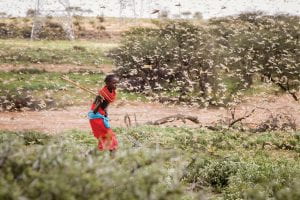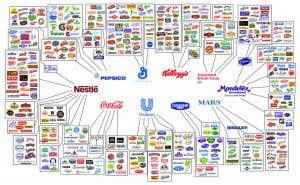The United States education system grooms its young students to view racism as a dark part of our country’s past. Through white-washed lessons hardly covering the full scope of slavery
and assigned readings of glorified tales like To Kill a Mockingbird, our education programs are an insult to our nation’s Black community who continues to face devastating violence and racism. Systemic racism is embedded throughout our society’s systems in healthcare, education, incarceration, and housing. Not until recently, did I discover the various avenues racism pervades throughout the world food system.
This course has responsibly educated its students how the food industry is saturated in racial inequities. Beginning with employment, Raj Patel’s research highlights how the Black community is substantially underrepresented in the food industry’s managerial positions. Many like to believe that the unlawful practice of
employment discrimination would deter this behavior but looking at the unequal wage gap, lack of diversity in hiring, and rare job promotion opportunities reveals the contrary. Systemic racism also infiltrates chocolate, American’s favorite commodity. American mega-chocolate corporations’ successful profits are a result of abusive African child labor practices along the Ivory Coast. This is another area where the U.S. looks hypocritical for championing the values of opportunity and freedom yet doesn’t uphold that for their relationships with nations beyond its borders.
As a Palestinian American, I empathize with the black community and their fight against systemic racism. Like the Black community, Palestinians understand systemic violence under the power of an oppressive government and have shown remarkable solidarity with the Black Lives Matter movement overseas. I am proud to be a part of a culture that is intolerant of

Palestinians protesting their support for Black Lives Matter overseas. Image Belongs To: https://www.dw.com/en/fatal-police-shooting-of-autistic-palestinian-sparks-outrage/a-53723002
racism and injustice and represents this through peaceful protest. The demoralizing narratives that plague Palestinians and the Black community serves to saturate false public perceptions of these communities. In order to rectify this, education needs to unlock stories like, Freedom Farmers, which disrupts the harmful narrative that Black farmers have oppressive ties to agriculture due to slavery and contradictorily focuses on how these farmers have powerfully utilized their land for activism, resilience, and survival against white supremacy and economic exploitation. Racism is clearly not a fixture in the past, but remains a problem in our present, and will continue to be a virus infecting our future if we’re not fully educated on how it pervades throughout the systems in our society.




















